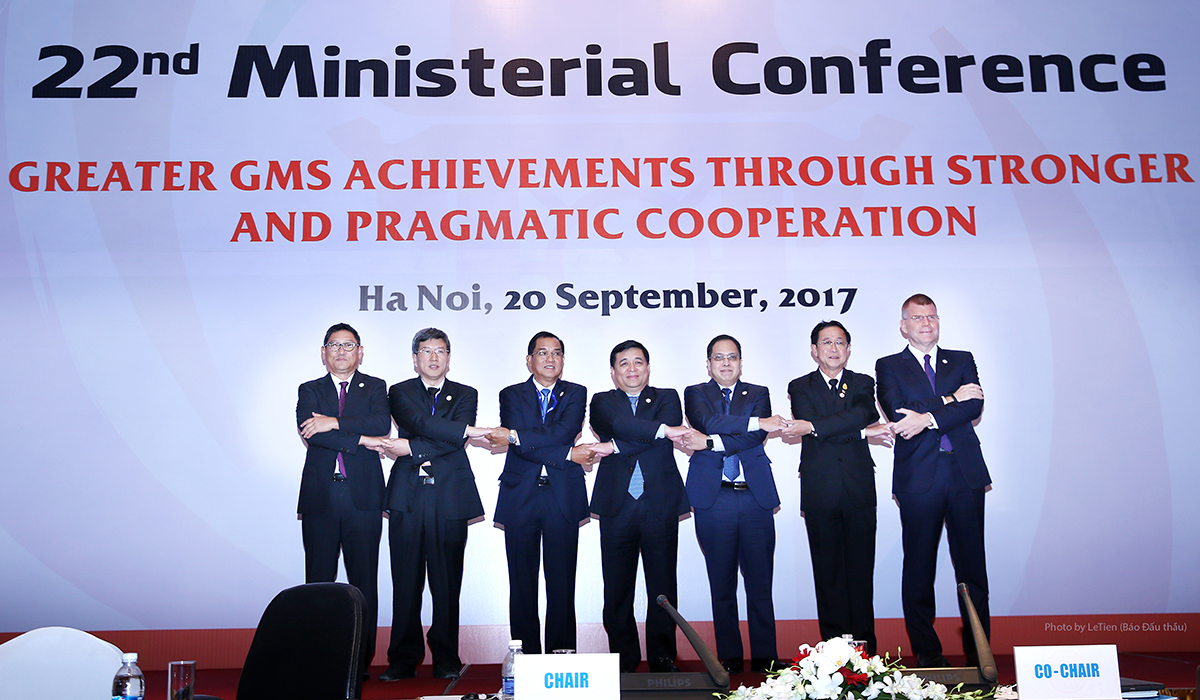GMS approves regional investment framework
 |
| GMS officials joining hands in celebration of the new regional investment framework |
Accordingly, GMS countries will call support and investment from development partners as well as the private business sector for these projects in order to help implement national priority programmesin the region for the next five-year period.
Approving the RIF 2018-2022 will support the implementation of the Hanoi Action Plan for the next five-year period, which was also discussed and approved by ministers at the 22nd Ministerial Conference.
The Hanoi Action Plan will play an important role in realising the GMS strategic framework in the 2012-2022 period as it will call member states to expand economic corridors to increase connectivity within the group and between urban and rural regions.
The action plan will be submitted to leaders of GMS countries to review at the 6th GMS Leaders’ Summit which will be held in Vietnam in March 2018.
Speaking at the conference, Minister of Planning and Investment Nguyen Chi Dung stated that, “During the process of realising the GMS co-operation programmes, member states will face numerous challenges, necessitating tighter cooperation, while simultaneously increasing financial support from international organisations and stimulating the private sector to join the programme.”
According to Stephen Groff, vice chairman of the Asian Development Bank, ADB is considered an important partner providing financial, technical, and human resources for GMS co-operation programmes, however, GMS countries are the ones raising ideas for co-operation programmes.
In the framework of the event, ministers will also review the strategic framework and action plan of GMS human resources development in the 2013-2017 period, while simultaneously discussing the strategic framework for the investment sector in 2018-2022 as well as the plans to develop the tourism sector in the 2016-2025 period.
Established in 1992, the GMS Economic Cooperation Programme is abbreviated as 3C, namely Connectivity, Competitiveness and Community. It is considered the most comprehensive cooperation programme in the Mekong Sub-Region. To date, the programme has built numerous co-operation policies to connect GMS countries and connect GMS countries with international development partners, namely the US, India, Japan, South Korea, and Europe.
The programme is built on seven sectors and multi-sector priorities to co-operate in transport, energy and power market integration, telecommunications and information and communication technology application, tourism, agriculture, environment and biodiversity, and human resources development.
Under the programme, more than $19.1 billion of investment and technical support projects across the whole spectrum of the seven sectors to be implemented.
What the stars mean:
★ Poor ★ ★ Promising ★★★ Good ★★★★ Very good ★★★★★ Exceptional
Latest News
More News
- Hermes joins Long Thanh cargo terminal development (February 04, 2026 | 15:59)
- SCG enhances production and distribution in Vietnam (February 04, 2026 | 08:00)
- UNIVACCO strengthens Asia expansion with Vietnam facility (February 03, 2026 | 08:00)
- Cai Mep Ha Port project wins approval with $1.95bn investment (February 02, 2026 | 16:17)
- Repositioning Vietnam in Asia’s manufacturing race (February 02, 2026 | 16:00)
- Manufacturing growth remains solid in early 2026 (February 02, 2026 | 15:28)
- Navigating venture capital trends across the continent (February 02, 2026 | 14:00)
- Motivations to achieve high growth (February 02, 2026 | 11:00)
- Capacity and regulations among British areas of expertise in IFCs (February 02, 2026 | 09:09)
- Transition underway in German investment across Vietnam (February 02, 2026 | 08:00)
















 Mobile Version
Mobile Version